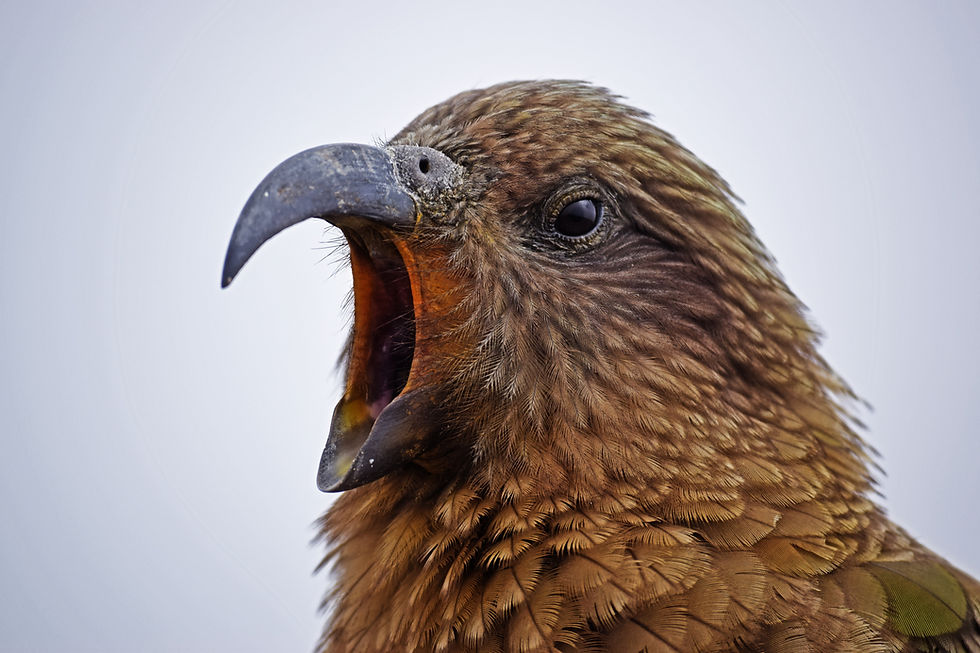Hemi's Story
Hemi had been dating his hoa rangatira for a year now. In his mind, sexual decisions need to be a space of recognising the mana within each other. Part of being a man means recognising when the things he wants to do are uncertain territory. He talks about how sometimes, in the heat of the moment his partner finds it hard to explicitly talk about her boundaries, and how it’s his job to make sure nothing happens that she wouldn’t openly agree to in daily life.
-
How does Hemi respect the mana and tapu of his partner?
-
What ways can we draw on mātauranga to help guide us “in the heat of the moment”?
-
How would you describe your relationship tikanga?

Anahera's Story
Anahera grew up in a whānau that always talked about sex. Her uncles and aunts would always tell her that her body was tapu, and that her desires and pleasure should be the top priority. As a kid, Anahera always brushed it off as the adults in their life being silly. But when she got her first partner, Anahera realised these conversations aren’t that common. Anahera’s partner often got very upset and worried about her performance while having sex. Anahera realised her partner had never been told that her desire mattered and were only doing things because she thought Anahera wanted her to. Anahera felt terrible and immediately called off the relationship.
-
How might we panic when we encounter nga piki me nga heke?
-
How might our understandings of our mana and tapu shape what we think we deserve or a worthy of?
-
How might colonial sexism create challenges for us in ways we might not expect?
-
How might sexism create challenges for wāhine in understanding our desires and those of others?

Hine's Story
Hine and her partner had been together for a few years. For her, exercising mana means having the reins on their sex life. “I decide how far we go, it’s always me. If I don’t want to do something, we don’t do it.” To her, this feels like power. In their dynamic her partner is happy for her to have that power. In the beginning this felt like a reasonable compromise because “boys always want sex”. However, over time Hine has realised this isn’t true, her partner doesn’t always want sex. Sometimes when he says he doesn’t want sex, she takes it personally, but as the years have passed she’s realised this has nothing to do with how much he loves her or is attracted to her. Being intimate means understanding each other, the hopes, dreams, uncertainties, fears and emotions they each have. It also means being able to see each other in the fulness of their sexuality and being able to take no for an answer.
-
How might our expectations about our sexuality and who we are attracted to change over time?
-
How might learning more about sexuality and desire shape new possibilities for our lives?
-
How might the people we spent time with change our expectations about sexuality?

Jay's Story
Jay has a long dating history, some of it not so nice. Over the past five years that they’ve been sexually active, they’ve learnt a lot about boundaries and how tricky they can be to enforce. Jay is interested in dating someone new, but knows it might be a big challenge to communicate openly and clearly like they want to. Jay has set up some ground rules that they’ve put on their Tinder profile –Rule 1: no make-up, break-up or post-fight sex, Rule 2: the traffic light system is a must (Red light means stop, Yellow light means proceed with caution and prepare to stop, and Green light means keep on going), Rule 3: all sex for the first 6 months has to follow the 3S rule –safe, sane and sober. Jay is hoping that stating the rules up front will help filter out people who aren’t willing to honour their mana, and will encourage people to ask questions and have discussions around sexual boundaries.
-
In what ways might our relationship tikanga be unique and shaped by our previous experiences and hurts?
-
How can we keep ourselves safe, without asserting boundaries or rules that might stop others from enacting their own boundaries or being themselves?

_edited.png)
Rangatahi pūrākau
These pūrākau are from some of the rangatahi interviews. They address challenges that can arise in a journey to becoming a sexual being. Each is followed by enquiry questions taken from the research interviews, these are designed support you to reflect on how they relate to people, how unhelpful ideas about gender and sexuality can impact them, and how they can create new ways of being and becoming sexual.
Explore more rangatahi pūrākau that might be helpful guidance in a journey to becoming a sexual being.